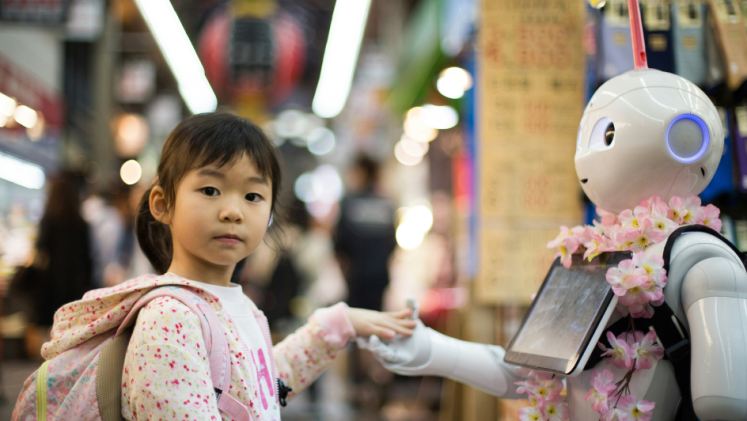Artificial intelligence (AI) has the potential to “supercharge” climate action, however, there are also risks coming with the technology especially if it is unregulated and without safeguards. The UNFCCC Climate Summit COP 28 set the stage for exploring how AI can help tackle climate change. Here are 5 insights into the advantages and challenges of using AI in the fight against climate change:
AI can propel the world towards the achievement of the Sustainable Development Goals
AI has the potential to advance and scale up transformative climate solutions, for example regarding mitigation and adaptation action. For instance, AI can be used to predict climate patterns and extreme weather events, improve crop yields, reduce water usage or optimize renewable energy systems.
AI enables sophisticated climate modelling and simulation
Scientists and policymakers can greatly benefit from AI to understand complex climate systems and simulate scenarios to assess potential impacts of policies and interventions. However, AI models can be complex and difficult to interpret, raising concerns about transparency and bias in decision-making. Ensuring AI models are created and implemented in a way that adheres to ethical standards and principles, for instance by being non-discriminatory and transparent, is crucial for their effective use in climate action.
Ethical and safe use of AI for climate action requires strong regulation and frameworks
Potentially, AI could contribute to rather than shrink global inequality. Currently, gaps exist between AI providers, governments and AI users. AI's effectiveness depends on data quality and the availability of suitable infrastructure. In some regions or sectors, lack of advanced technology or reliable data may hinder AI's potential in climate action. Often, these are places in the Global South, where communities are already at the frontline of climate change impacts, while most research in AI is conducted in the Global North. Equal access to AI demands awareness of existing digital divides, data gaps and biases.
AI can revolutionize conservation and natural resource management
AI-powered systems can monitor ecosystems, wildlife habitats and natural resources more efficiently than traditional methods, enhancing conservation efforts, biodiversity preservation and sustainable resource management. For example, AI can make solar panels smart. A smart solar panel functions similar to sunflowers: it always turns towards the sun, making the solar power technique as efficient as it can be.
Enhancing climate change mitigation and resilience requires greener AI systems
AI can improve early warning systems for natural hazards like hurricanes, floods, and wildfires, boosting response times and reducing human casualties. It also aids in post-disaster recovery through rapid damage assessment and resource allocation. However, AI applications use big data to do so and therefore collect and analyse large amounts of data, which raises privacy concerns and demands significant energy for processing. Balancing the benefits of enhanced resilience with ethical considerations regarding data privacy, consent and energy consumption is critical. Making AI more sustainable and environmentally friendly is necessary throughout all AI applications. It is key to ensuring that advancements in AI contribute to mitigating climate change rather than worsening its impacts.





